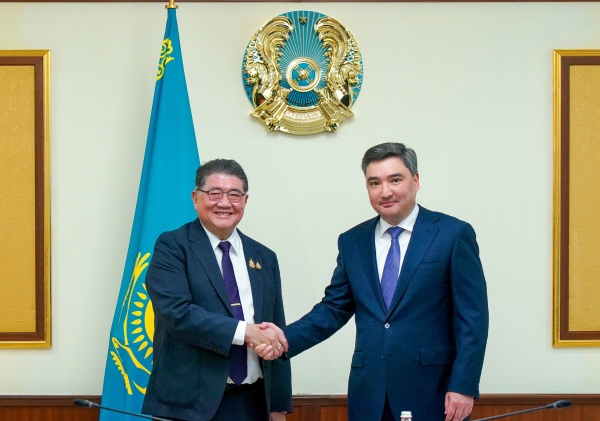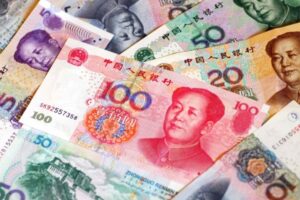Olzhas Bektenov, Prime Minister of the Republic of Kazakhstan, met with Phumtham Wechayachai, Deputy Prime Minister of the Kingdom of Thailand, to explore opportunities for enhancing bilateral trade, tourism cooperation, and the implementation of joint investment projects. The meeting highlighted both nations’ commitment to strengthening economic ties and expanding their partnership.

In 2023, trade between Kazakhstan and Thailand reached $367mn, underscoring the importance of this relationship. Both parties discussed the potential for increasing exports of Kazakh agricultural products to Thailand, with a focus on meat, vegetables, fruits, grain crops, flour products, and vegetable oils.
Bektenov emphasized Kazakhstan’s ongoing efforts to develop a national commodity distribution system, which includes infrastructure for storing and distributing agricultural products. This system is expected to support the formation of an agro-food hub in Kazakhstan, opening new avenues for investment and cooperation with Thailand.
“On the instructions of the Head of State, we are developing a national commodity distribution system with the corresponding infrastructure for storage and distribution of agricultural products. This will create the necessary conditions for the formation of an agro-food hub in our country. Deepening cooperation between Kazakhstan and Thailand in this matter is mutually beneficial and promising,” Bektenov remarked.
Phumtham Wechayachai expressed optimism about the future of economic ties between the two countries.
“This morning we signed an agreement on economic cooperation. I believe that this document will help expand cooperation in various areas, including trade, economics, and investment,” he stated.
The meeting also acknowledged positive developments in tourism, particularly Thailand’s visa-free regime for Kazakh citizens and the planned opening of a consular office in Phuket, which aims to assist Kazakhstanis in the region. Additionally, the potential use of Kazakhstan’s transit capabilities, particularly through the Trans-Caspian route, was explored as a means to enhance connectivity and trade.
The discussions concluded with both sides expressing a strong intention to further deepen economic cooperation and expand their partnership across various sectors.




